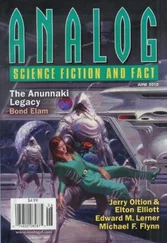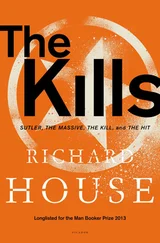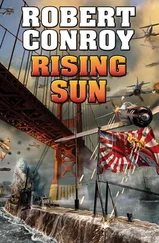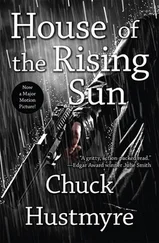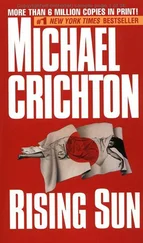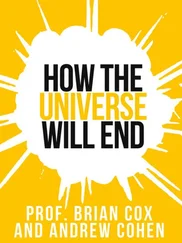“Use this to help. But don’t hoard it. Spend it all today. When people figure out the power isn’t coming back on, they’ll stop accepting cash. They’ll want something else, like to trade.”
“How do you know all this? Who are you?”
“Just a guy who writes movies, honest. But I’ve also done a lot of research about something called an electromagnetic pulse. It can come from a solar flare or a nuclear weapon or even a supernova, and it can knock out the power and kill every electronic device. If that’s what this is, things will become very different. Do you have a gun?”
Chanda looked at him for a long moment without answering.
“I think you’re overreacting. This isn’t a third world country.”
Thomas glanced at Amanda, then back at her mother.
“Maybe not. But that could change really fast. Stock up on food and water, just in case.”
Chanda looked both frightened and defiant, and Skylar wondered what she would do in the mother’s shoes. Without context, the things Thomas had said seemed outlandish. But Skylar had read his script, and she couldn’t see any reason why the real world would fare better after an EMP than his fictional one.
“Thanks for the ride,” Chanda finally said. “I’ll think about what you told me. But I hope to God you’re wrong. Honestly, I hope you’re full of shit.”
* * *
Once their passengers were gone, Skylar had nothing to do but look around, and all she saw was dread. Hordes of people were crowded on sidewalks, clustered in groups, looking at the new star, looking toward the airport, streaming into and out of convenience stores and banks and churches. Others were on bicycles, and she even spotted two off-road motorbikes. But almost everyone she saw, no matter who they were or what they were doing, stared lustily at Thomas’ Mustang. And to Skylar it seemed like a feral sort of envy.
Again she thought of her mother and father in New York. They’d both grown up poor and knew the meaning of hardship, but today they lived in an expensive apartment on the Upper West Side. Her father worked in the Empire State Building, on the 53rd floor, and her mother’s office was a short walk from their apartment. Both would have been at work when the new star appeared, but what were they doing now? With no elevator, on bum knees, how would her father ever make it to the street?
Her brother, Sean, lived in Echo Park, and he was one of the smartest men Skylar knew. But there were twenty million people in southern California, and the only agriculture Skylar had ever seen near the city were vineyards and fruit orchards. What were twenty million people going to eat when there were no trucks to bring them food?
What about Sallie and Jessie, her two precious Chihuahuas?
Even though she was a girl and couldn’t always help it, Skylar took great pride in not crying in front of other people. Especially men. So she looked away from Thomas, toward the street, and through her tears saw a woman pushing a stroller. The woman’s face was stricken white. Skylar made eye contact with her and then quickly looked away, into the side mirror. She saw movement in the side mirror. It was a policeman waving his arms.
When she leaned closer, hoping to get a better look, she finally realized the officer was waving at them.
“Thomas, there’s a—”
“Cop, I know. We’re not stopping. Don’t turn around.”
“What? Why?”
“Because he probably wants my car and I’m not giving it to him.”
“But he’s a police officer, for heaven’s sake. Maybe—”
Thomas had slowed to navigate an intersection choked with stalled cars, but now he was through it and accelerating again.
“You want to risk it? You want to walk two more miles to my house?”
Skylar thought again of her family, stranded, and shut her mouth.
“I’m sorry,” he said. “If this really is a pulse, no one will be able to help us if something goes wrong. There are seven million people in this city. For the police, having one working car would be like shooting a rifle at a spaceship. It’s not going to make a difference. But for you and me, it makes all the difference in the world.”
“You really think no one is coming? You really think the government doesn’t have a plan for this? I just can’t believe today of all days is the end of the world.”
“Until we know for sure, we should proceed like we’re on our own. Don’t you think?”
“I’m worried about my family,” Skylar said, and gave in to the tears. “Especially my parents. They live in Manhattan. What are they going to do?”
Thomas reached over and lightly squeezed her shoulder.
“I’m sure they’re okay. At least right now they are. And maybe you’re right. Maybe the government is already on its way to fix all this.”
It annoyed her that Thomas wouldn’t address the improbable nature of what was happening. Not just this awful disaster, but specifically how similar it was to the screenplay he’d written. The Pulse, after all, was the story of a global catastrophe ignited by the same kind of technology-melting apocalypse the new star had induced. Thomas had written about planes falling out of the sky, about fires that swept across cities, about people caught in unfortunate places like elevators and Swiss gondolas that were trapped halfway between the ground and their distant destinations. That Skylar had flown here to discuss an apocalyptic story which was now in the process of unfolding was inconceivable. It was frightening. And Thomas hadn’t said a word about it.
Eventually they left the crowds of wandering people behind and crossed a lake on a four-lane bridge. After another stretch of mostly empty road, they turned onto a narrow and lonely-looking street that wandered into Thomas’ neighborhood. From there it was a short drive to his house, a large, French country home that stood on the shore of the lake and looked like it had been built yesterday.
Thomas unloaded her luggage and carried it toward the house. Inside she found European sofas that sat near the ground, a mixture of dark and light woods, enormous plate glass windows that opened to a grand view of the lake. As if any of it mattered.
“It’s great that we’re here now, but I’m still scared to death. I’m afraid I’m never going to see my family again.”
He reached for her then, and Skylar let herself be held. She barely knew this man, but she also understood they were in this together. She was overwhelmed, near panic, and somehow Thomas seemed so unflappable about it all.
“I hope you’re wrong,” Skylar confessed. “Just like that woman said. I hope you’re full of shit. Because in your screenplay almost everyone dies.”
Thomas let go of her and put his hands on her shoulders.
“Listen to me. I don’t know what’s going to happen. No one does. But we have a better chance than most.”
“Why is that? Because of your car?”
“Not just that. Let me show you something.”
Thomas led her deeper into the house until they were standing in front of a sturdy steel door. He retrieved a key from his pocket and inserted it into the dead bolt lock.
“This is a safe room. The walls are eight inches of reinforced concrete. It’s built to withstand an EF-5 tornado and even a catastrophic fire. Hence the name.”
Thomas threw the door open. With no windows, the room was dark, but he grabbed a couple of flashlights and handed one to her. He switched his on and waited for her to do the same.
What she saw took her breath away. Shelves had been mounted, from floor to ceiling, along all four walls. The room was as large as a typical bedroom.
Food covered every available surface. Rice and beans and cereal and oatmeal. Dried milk and jars of pickles and mayonnaise. Industrial sized cans of vegetables. Canned meats and sauces. Gallon jugs of water were stacked in crates, along with hundreds of individual bottles. Cases of beer and liquor covered an entire corner. Flour and sugar and spices and salts. Packages of corn chips and potato chips and an entire platoon of nuts— cashews, peanuts, mixed nuts, Spanish nuts, pecans, almonds, pistachios.
Читать дальше

